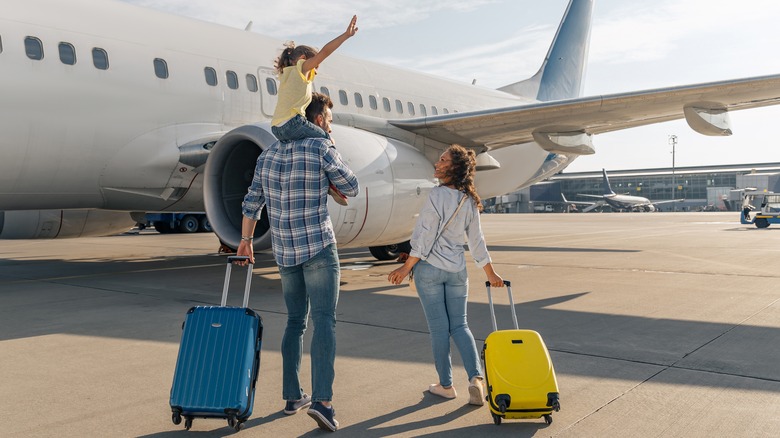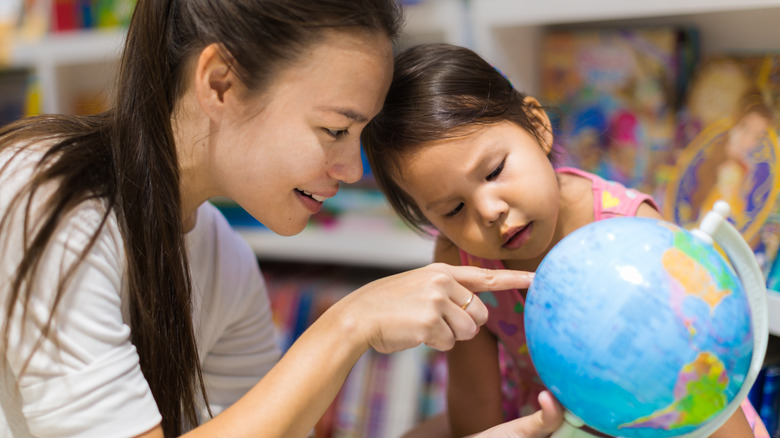Is Traveling With Young Children Worth It? Here's What You Should Know
Traveling is already stressful on its own. Depending on your destination, there's usually a long list of things you need to do to prepare yourself to leave. From booking your hotel to getting the required vaccines, executing all of the logistics of a trip can be absolutely exhausting. What sounds even more tiring is organizing all of these things not just for yourself but for your children as well.
Going out to dinner can already be chaotic, so the idea of getting on a plane with your toddlers might sound like an absolute nightmare. Even if you persevere through all the challenges of family travel and give your kids the experience of a lifetime, it's likely they won't remember it at all in a few years. And while we have listed quite a few cons to traveling with young children, we think it's worth the hassle. Here's our reasoning for this belief.
Early childhood years are highly impactful
If you try to reach back into your earliest memories as a toddler, you probably can only muster a vague impression of them. In a 2014 study published by the scientific journal Memory, researchers found that by the time children were nine years old, they remembered less than 40% of their early experiences. We've all experienced this amnesia firsthand, and as a result, many parents might doubt there's a point in throwing that extravagant first birthday party or taking their kid to the Galapagos Islands. But this misconception couldn't be further from the truth.
In psychology, the first six or so years of a child's life are often considered to be the most impactful. In fact, in the very first 12 months of life, a child's brain increases twofold. By age 5, their brain is about 90% fully evolved. Because of this, the experiences you give your kid during these growth spurts lay the foundations for how they view and interact with the world.
Travel is especially beneficial to early childhood development
Travel provides an incredible opportunity to open our minds and learn about the world around us. As we mentioned previously, when your child is in their earliest years, some of the most important functions in their brain are beginning to form. These years have a massive influence on their learning style, mental health trajectory, and communication styles for the rest of their life. When young children travel, they increase their likelihood of success in these three areas.
Exposure to novel languages, foods, cultures, and landscapes can make children curious and receptive to new information. Dr. Robin Hancock, a Bank Street College global education specialist, explained to Travel and Leisure, "They're going to start learning the tools for developing meaningful relationships, especially across differences, from an early age." Of course, there are some routines you should stick to when traveling internationally with kids so they're not overwhelmed with unfamiliarity. But, as long as you're there reassuring them that they are safe, diverse experiences will set your kid up to be prepared for the life ahead of them.
So, book your next family vacation somewhere exciting. We can't guarantee your kids will remember the amazing canal tour of Amsterdam or how to say "Bonjour" upon walking into a French establishment. But we can guarantee the experience will leave a positive imprint on them for life.


